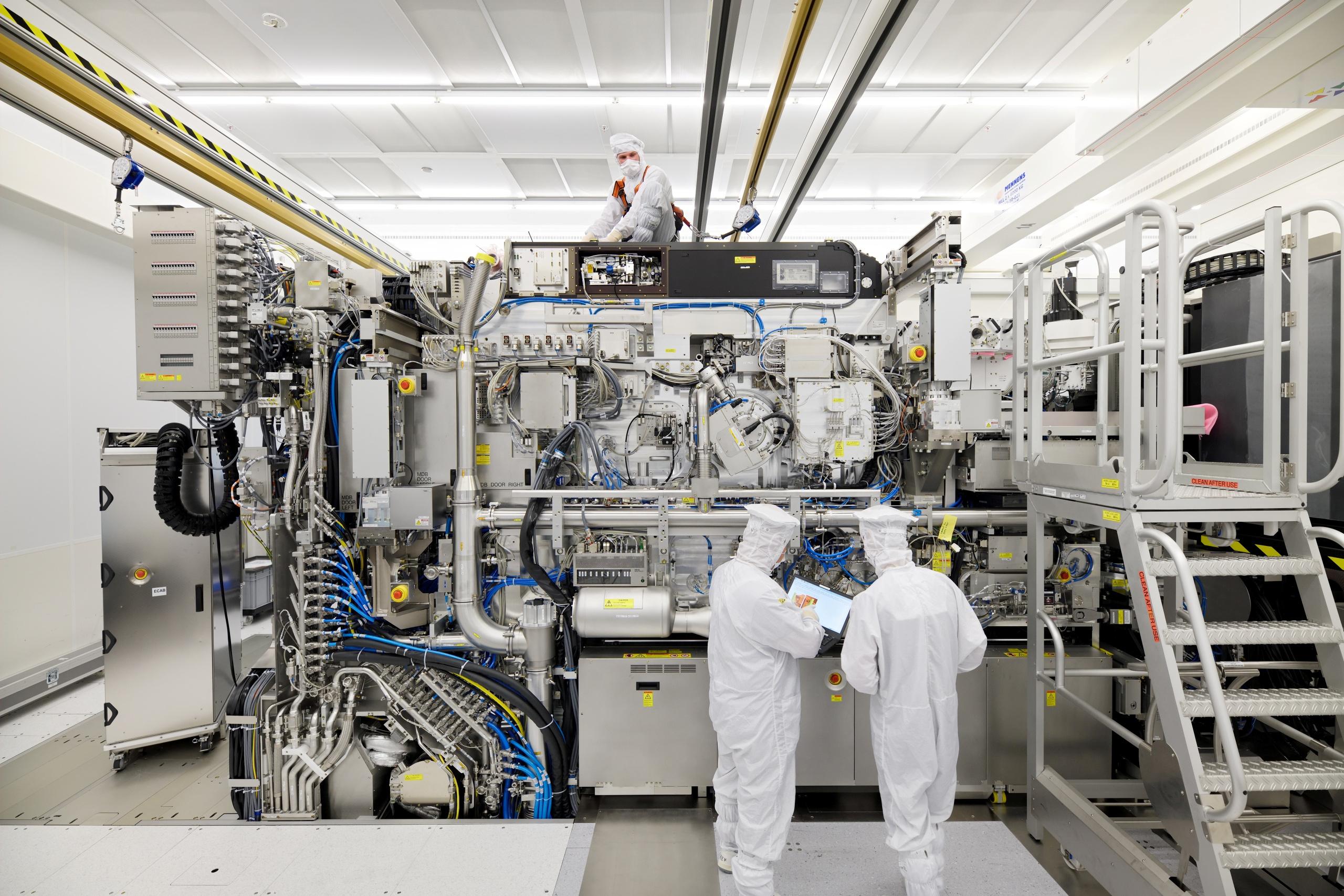

ASML's TWINSCAN NXE:3400B semiconductor lithography tool. Image credit: ASML
China president Xi Jinping has called for his country to “win the battle” on strategically important technologies, days after the US dramatically expanded trade sanctions aimed at crippling China’s tech initiatives.
“We will focus on national strategic needs, gather strength to carry out indigenous and leading scientific and technological research, and resolutely win the battle in key core technologies,” Xi said in a speech on Sunday at the opening of the Communist Party Congress in Beijing, which takes place every five years.
He said the country would push ahead with innovation in areas vital to “technology self-reliance”.
“China will move faster to launch a number of major national projects that are of strategic, big-picture and long-term importance,” he said, without giving details.
The country has been trying to develop self-sufficiency in key areas such as semiconductors, a development the US sees as a threat to its national security.
State funding has helped create fast-growing chip firms such as Semiconductor Manufacturing International Corp. (SMIC) and Yangtze Memory Technologies Co. (YMTC).
But US regulations passed earlier this month dramatically restrict the sale of advanced semiconductors and chip-making equipment to Chinese organisations, dealing a blow directly to those plans.
The US also added 31 companies to its unverified list, including YMTC and a subsidiary of leading chip equipment maker Naura Technology Group, significantly limiting their ability to buy equipment from US suppliers.
Such moves were first tested on Chinese telecommunications equipment maker Huawei, effectively hobbling its growth and forcing it to sell off a large part of its smartphone manufacturing operations.
China criticised the curbs, with its Foreign Ministry saying the moves were unfair and would “also hurt the interests of US companies”.
In his speech Xi also hailed industries where he said China had achieved breakthroughs over the past decade, including large aircraft, space flight, satellite navigation and biomedicine.
China has been ramping up its space programme, with plans for missions to the Moon and Mars and the launch of its Tiangong space station, whose first module was launched into orbit in April 2021.
Denial from TSMC, after multiple reports it was in talks with Intel over a joint…
CEO Tim Cook talks to Trump official, as IDC notes China's smartphone market growth, and…
Another big name chip maker expects a hefty financial charge, after the US tightened rules…
More bad news for Google. Second time in less than a year that some part…
Federal office that tackled misinformation and disinformation from hostile nations is closed down, after criticism…
After Nvidia admits it will take $5.5 billion charge as Trump export limits of slower…